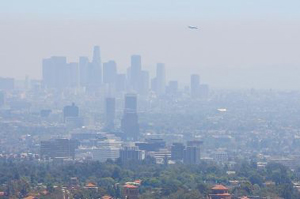Action on Climate Change Para Nuestra Salud

After President Obama’s comments on climate change during the State of the Union address, a new poll by the Natural Resources Defense Council affirmed once more that Latinos support taking action on climate change.
As the story by Voces Verde noted:
“’In light of State of the Union, we wanted to see where Latinos stood on Obama’s comments about climate change,’ says Adrianna Quintero, Director of Voces Verdes. ‘What was surprising was that once again Latinos have higher support for taking action against global warming.’”
“’It’s an economic issue. It’s a health issue,’ says Andrea Delgado, Legislative Representative at Earthjustice and former fellow at the National Latino Coalition on Climate Change. ‘Making sure we’re protecting communities all across the board, means nurturing cleaner energy from cradle to grave.’”
This is important to note because there are a variety of reasons why we need to take action on climate change. Much of the discussion has been regarding the science and causes of climate change, along with some of the ecological and physical changes that would come from a changing world under climate change duress—think of melting glaciers and endangered polar bears.
But another issue that has also been key is the direct impact of climate change on us, humans—especially when it comes to health.
It has been fairly clear how general environmental health disparities exist for communities of color, but it is important to ask and note: How do we connect health regularly to climate change?
There are certainly a host of issues connecting health and climate change, from the effects of increased algal fish blooms, increased pests like mosquitos, dirtier air, and extreme heat waves. The key is how it affects people and how we look at this from a public health perspective.
As this article from Scientific American notes,
“’The face of climate change ought to be people,’ epidemiologist George Luber, associate director for global climate change at the Centers for Disease Control and Prevention, said in an interview. ‘We ought to kind of internalize it.’”
“Some of those effects are easily identified, like the injuries and loss of life that result from more frequent and intense storms. Others are more subtle, like loss of power after a storm that may expose a region to extreme heat from lack of air conditioning, the cumulative effect from more allergies due to higher pollen counts, and the introduction of new diseases from warmer climes that Luber said are already popping up in unlikely places.”
As Latino communities, this is a strong issue on which to rally because as with many disparate environment effects, it is communities of color that are usually “hit first and hit worst”.
This is not to mean that this is merely a self-interested look at climate change. It does matter that we are wiping out habitats and endangering species through climate change. But the connection to saving the polar bear is not as concrete an issue for many communities that do not have the same privileges as more affluent communities have with the outdoors. This is also not to say that Latinos and communities of color do not care or are not able to grasp the concept of threatened species and melting glaciers—it is a simply a reality that more pressing issues are the health of their children, or losing access to affordable food and water.
The good news is that many communities of color have clearly made these connections and have begun taking action. The call now is to keep stressing these points so that we can save the polar bear, and our health—Hay que tomar acción por el planeta, nuestra salud y nuestras comunidades.
[Photo by California Air Resources Board (2011)]

